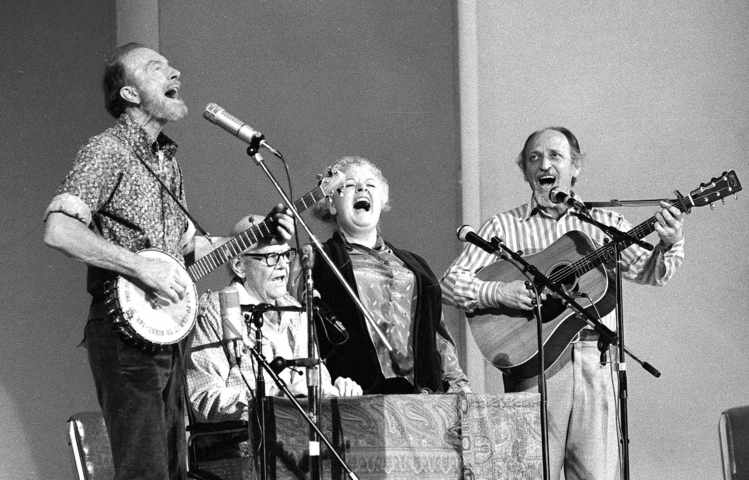Investigative Classics is a weekly feature on noteworthy past examples of the reporting craft.
It began as a Zulu chant and was later made famous by American folkies. But “The Lion Sleeps Tonight” didn’t really become a worldwide sensation until a lyricist whose credits included “Can’t Help Falling in Love” for Elvis Presley penned a few immortal lines.
As Rian Malan reported for Rolling Stone in 2000, “The Lion Sleeps Tonight” is not just one of the world’s most beloved songs – a chart-topping hit in America, Europe, Asia and Africa. It is also a prime example of how global culture works through cross-pollination rather than cultural appropriation. He wrote:
This is an African yarn, but it begins with an unlikely friendship between an aristocratic British imperialist and a world-famous American negro. Sir Henry Loch is a rising star of the Colonial Office. Orpheus McAdoo is leader of the celebrated Virginia Jubilee Singers, a combo that specializes in syncopated spirituals. They meet during McAdoo’s triumphant tour of Australia in the 1880s, and when Sir Henry becomes High Commissioner of the Cape Colony a few years later, it occurs to him that Orpheus might find it interesting to visit. Next thing, McAdoo and his troupe are on the road in Africa, playing to slack-jawed crowds in dusty mining towns.
This American music is a revelation to “civilized natives,” hitherto forced to wear starched collars and sing horrible dirges under the direction of dour white missionaries. Mr. McAdoo is a stern old Bible thumper, to be sure, but there’s a subversively rhythmic intensity in his music, a primordial stirring of funk and soul. The African brothers have never heard such a thing. The tour turns into a five-year epic. Wherever Orpheus goes, “jubilee” music outfits spring up in his wake and spread the glad tidings, which eventually penetrate even the loneliest outposts of civilization.
One young African influenced by the Orpheus-inspired syncopation was Solomon Linda, who recorded the earliest version of this song, “Mbube,” Zulu for the lion, in 1939. The classic melody, for which the words "In the jungle, the mighty jungle, the lion sleeps tonight" would be later written, came only at the very end of the song.

Only a handful of recordings still existed in the late 1940s when the musicologist Alan Lomax shared his copy with Pete Seeger, the folk singer. Seeger heard the Zulu chant as “Wimoweh” and later taught it to the rest of his band, the Weavers.
Others soon covered the song, including Jimmy Dorsey, Yma Sumac and the Kingston Trio – who described it as an African song they’d picked up in Los Angeles. Malan wrote:
By now, almost everyone in America knew the basic refrain, so it would have come as no particular surprise to find four nice Jewish teenagers [known as The Tokens] popping their fingers and going ah-weem-oh-way, ah-weem-oh-way in the summer of 1961. … [Their producers] wanted to revamp the song, give it some intelligible lyrics and a contemporary feel. They sent for one George David Weiss, a suave young dude in a navy-blue blazer, presently making a big name for himself in yesterday’s music, writing orchestrations for Doris Day, Peggy Lee and others of that sort. The Tokens took him for a hopeless square until they discovered that he’d co-written “Can’t Help Falling in Love With You” for Elvis Presley. That changed everything.
So George Weiss took “Wimoweh” home with him and gave it a careful listen. A civilized chap with a Juilliard degree, he didn’t much like the primitive wailing, but the underlying chant was OK, and parts of the melody were very catchy. So he dismantled the song, excised all the hollering and screaming, and put the rest back together in a new way. The chant remained unchanged, but the melody—Solomon Linda’s miracle melody—moved to center stage, becoming the tune itself, to which the new words were sung: “In the jungle, the mighty jungle” and so on. … What concerns us here is the song’s bloodline, and everyone agrees on that: “The Lion Sleeps Tonight” was a reworking of “Wimoweh,” which was a copy of “Mbube.” Solomon Linda was buried under several layers of pop-rock stylings, but you could still see him beneath the new song’s slick surface, like a mastodon entombed in a block of clear ice.
The second half of Malan’s story is a sordid tale of economic appropriation in which Linda was cheated out of payment for his art.



